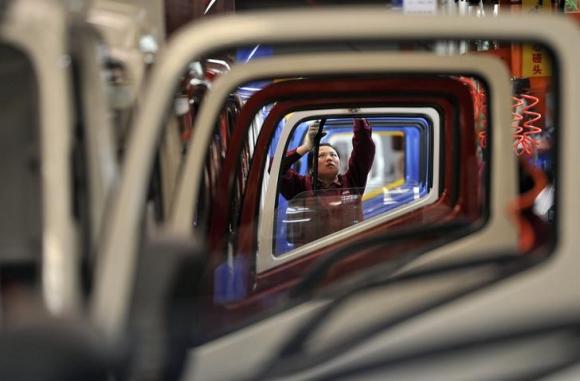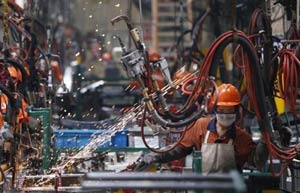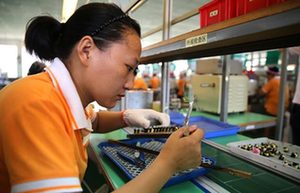 |
|
A worker installs rubber onto the windows of the doors along a production line at a truck factory of Anhui Jianghuai Automobile Co Ltd (JAC Motors) in Hefei, Anhui province May 5, 2014. [Photo/Agencies] |
Growth in China's large factory sector slipped to a three-month low in August as foreign and domestic demand cooled, a private survey showed on Monday, raising concerns that the economy is faltering after a bounce.
The final HSBC/Markit Purchasing Managers' Index (PMI) retreated to 50.2 in August, roughly in line with a preliminary reading of 50.3 and only a shade above the 50-point mark that demarcates an expansion in activity from a contraction.
China's official manufacturing PMI for August, reported on Monday, was 51.1, compared with 51.2 in a Reuters poll and July's 51.7.
 |
 |
China and Hong Kong stock markets rose slightly after the HSBC and official PMIs came out. Regional currencies did not move on the numbers.
In the HSBC survey, demand appeared to have softened across the board in August.
New orders and new export orders - proxies for domestic and foreign demand, respectively - fell to their lowest in two to three months, but managed to hold above the 50-point level.
The new orders sub-index was the worse performer of the two, shedding two full points to 51.3 from July.
The underwhelming performance may reinforce bets that China would further loosen fiscal and monetary policies to stoke growth in the world's second-biggest economy.
"The economy still faces considerable downside risks to growth in the second-half of the year, which warrants further policy easing,” said Qu Hongbin, an economist at HSBC.
Firms had reported "subdued client demand" for new orders, especially for those selling investment goods, the PMI showed.
Lackluster final demand weighed on the labor market, which shrank the most in three months in August as companies fired workers or declined to fill job vacancies as to reduce costs.
The broad cooldown in activity caused production prices and final sales prices to fall, the survey showed, adding that a number of companies had cut spending on steel in particular.
